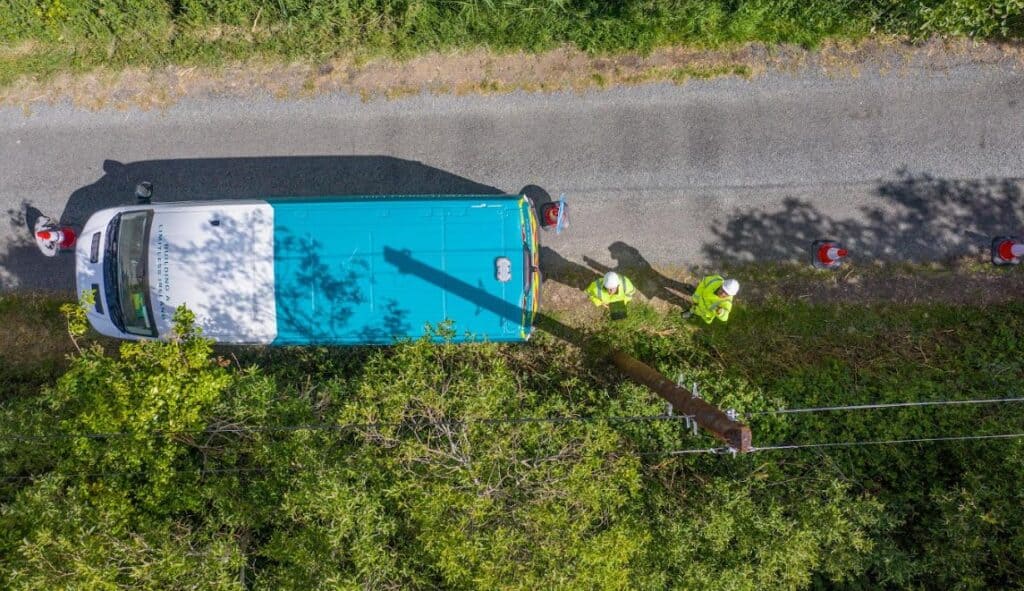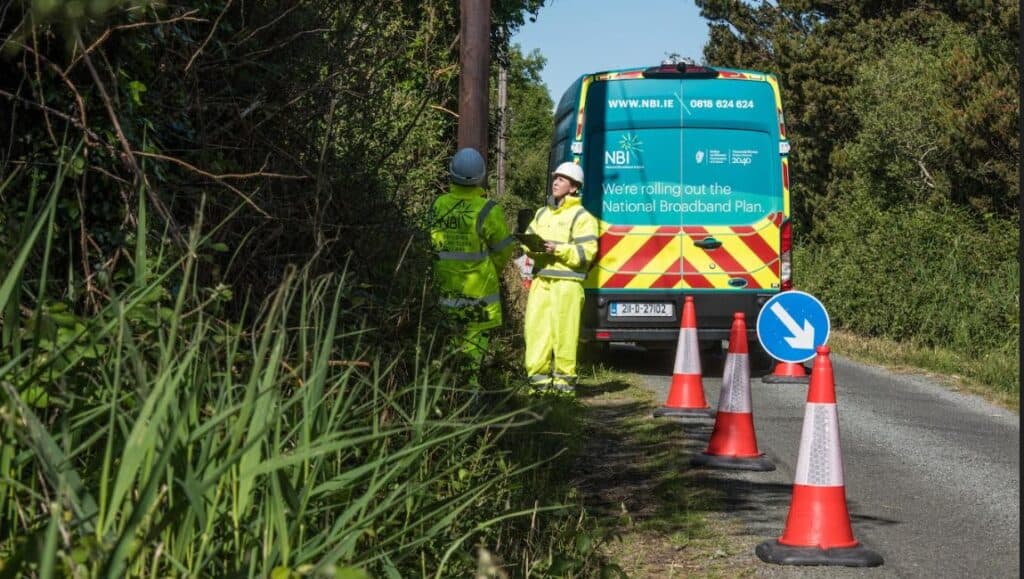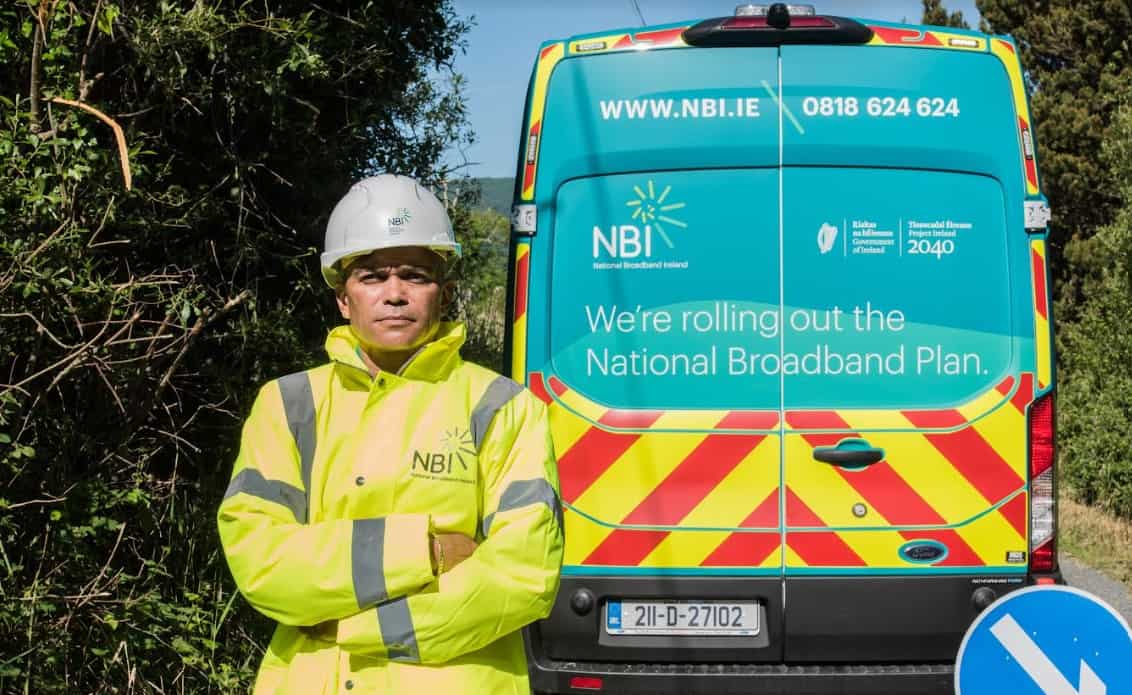Why companies must embrace new sustainability reporting
By Peter Hendrick, Chief Executive of National Broadband Ireland.
Over a year ago, on the 5th January 2023, the Corporate Sustainability Reporting Directive (CSRD), entered into force and ushered in a new era of corporate accountability, compelling businesses to champion authentic sustainability practices and to make disclosures based on a holistic set of ESG metrics.
As EU member states diligently implement these regulations and transpose the directive into law, a recent 2024 study by Mason Hayes & Curran (MHC) paints a concerning picture: less than half of Irish businesses (42%) feel adequately prepared for the impending changes.
So, what should businesses take note of, and is there cause for concern about the readiness of companies to navigate the evolving sustainability landscape? As someone responsible for leading a prominent Irish business – National Broadband Ireland (NBI) – I’ve taken a look at mapping out some of the key factors.

The Directive arises from the European Green Deal climate change action objectives and is anticipated to improve, as well as standardise, the manner in which organisations report on sustainability matters – including climate and environmental disclosures.
At its heart, the CSRD, broadens the scope of existing rules for non-financial reporting; ensuring that companies will be required to report on a double materiality basis. In practice, this compels companies to disclose both financial materiality (risks faced from Environmental / Social / Governance matters), as well as reporting on impact materiality (potential ESG risks created by the business). The mandatory reporting standards under the CSRD were developed by the European Financial Reporting Advisory Group (EFRAG) to standardise reporting practices and enhance transparency.
When faced with any new directive of this sort, you are often left pondering whether the regulators will take a carrot or stick approach. However, in this case, the stakes are so high, that I believe that with the correct supports, Irish businesses will do the right thing.
For many years now, customers, stakeholders and investors have been rightly demanding that companies consider how their business impacts the world, how they are contributing to society, and how they conduct themselves in their dealings with their employees, partners and competitors. As expectations from shareholders, investors, and the public evolve, companies must recognise sustainability, not just as a compliance burden, but as a strategic imperative.
Embracing this paradigm shift isn’t just about meeting regulatory obligations; it’s about fostering long-term value creation and societal well-being.
Beyond simply identifying and reporting on ESG matters, I feel that focusing on issues such as climate change, biodiversity, energy consumption, and greenhouse gas emissions makes companies operate to higher standards, as well as making them better places to work.
I agree with Dara Calleary, Minister of State with responsibility for Company Regulation at the Department of Enterprise, Trade and Employment, when he said, “Shareholders, investors, and the public’s expectations have risen on what companies should be doing in the ESG arena and embracing this change in the paradigm will add value to companies in the long term.” Embracing this paradigm shift isn’t just about meeting regulatory obligations; it’s about fostering long-term value creation and societal well-being.
As a relatively new company (established in 2020) and without legacy processes, National Broadband Ireland have recognised the potential for environmental, social and governance risks, and we actively work to identify and manage them, just as we manage risk in all areas of our business.
Equally important, we believe companies like ours have an obligation to put their businesses to work for all of their stakeholders. For example, NBI aims to develop our first steps on the road to net-zero and having achieved ISO 50001 (which focuses exclusively on energy), we are focused on ongoing and sustained improvements in energy efficiency, as well as reductions in greenhouse gas emissions.
It’s true to say that the CSRD is expected to have a significant input on the way companies organise and manage their operations; and in particular, their relations with stakeholders; but that is only a good thing.
We’re fortunate that our majority shareholder, Asterion, is a signatory member of United Nations Principles for Responsible Investment (UN PRI) and play a significant role in our focus on ESG matters. Publishing, on a voluntary basis, our first annual Sustainability Report, we wanted to shine a light on what NBI is doing from a strategy, policy, metric and targets point of view, with the hope of stimulating discussion and wider engagement with customers, stakeholders and suppliers alike.

Specifically, having embedded ISO 45001 in our organisation, NBI is driving higher health and safety standards across the delivery of the National Broadband Plan by ensuring our build contractors are all accredited to the same ISO standard.
In 2023, NBI was instrumental in launching the EHS Telecoms Industry Forum. It was identified that all companies working within the telecoms industry are constantly striving to drive H&S initiatives and provide the safest possible working conditions. To foster a shared learning platform, NBI launched the forum with a commitment from all contractors working on our behalf and other major infrastructure owners to come together to share knowledge, discuss common issues and commence establishing a baseline for H&S standards within the industry. Moreover, collaboration underscores the collective responsibility towards safety, sustainability, and knowledge-sharing.
The advent of the CSRD inevitably will raise awareness about the opportunities inherent in adopting a sustainable approach to doing business. However, as highlighted, some less prepared organisations may be tempted to resort to greenwashing tactics. Nevertheless, with standardised reporting and increased transparency mandated by the CSRD, the risks of misleading claims or manufactured contributions to sustainability matters will be mitigated.
As the CSRD catalyses greater awareness and accountability, the era of greenwashing will be challenged. This momentum will continue with the introduction of future directives like the Corporate Sustainability Due Diligence Directive (CSDDD), further reinforcing the imperative for genuine progress towards sustainability.
We’re confronted with a crucial question: “What legacy will we leave for future generations?” The answer lies in our collective commitment to authentic sustainability practices.
To delve deeper into NBI’s sustainability initiatives and engage with our annual Sustainability Report, https://nbi.ie/2023-sustainabilty-report/.
 About the author: Peter Hendrick is Chief Executive of National Broadband Ireland.
About the author: Peter Hendrick is Chief Executive of National Broadband Ireland.
READ MORE:



